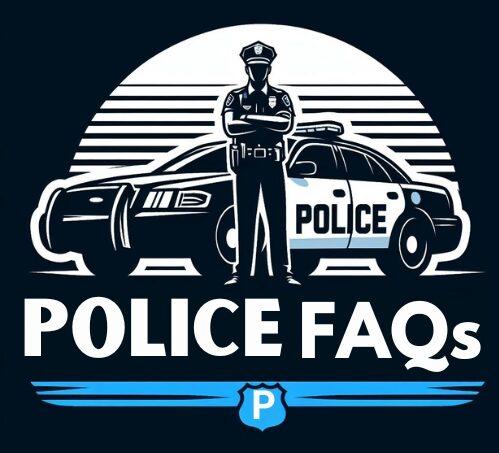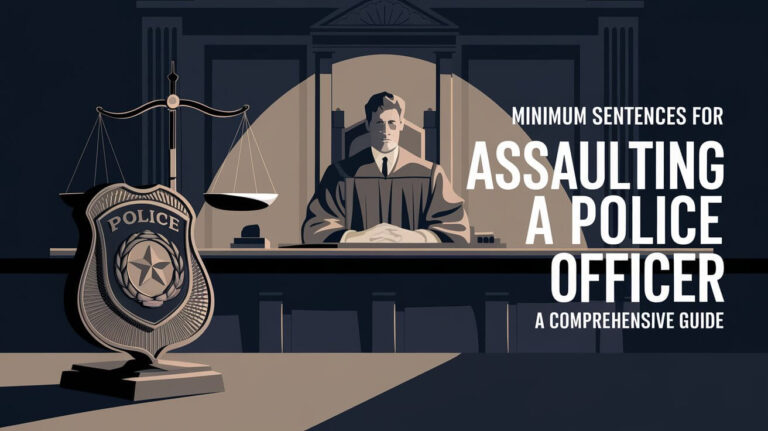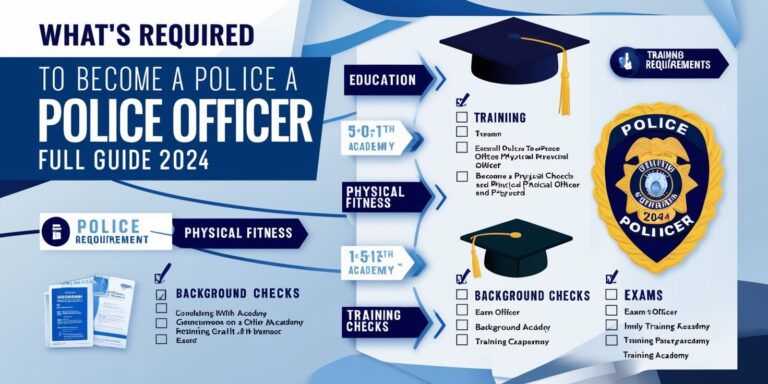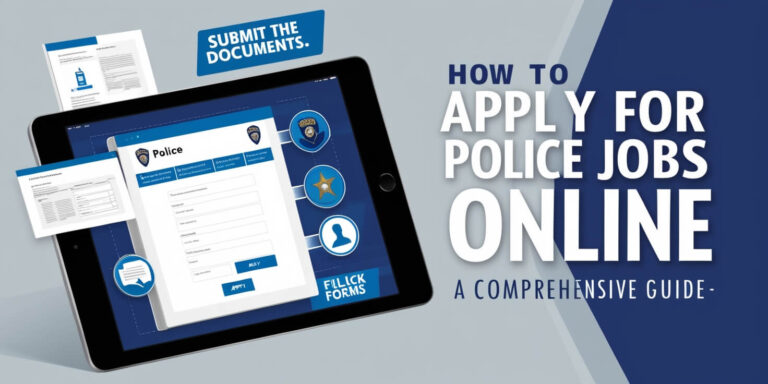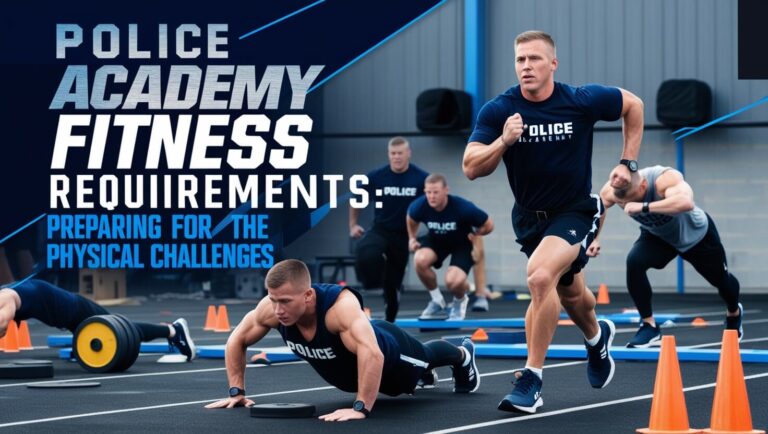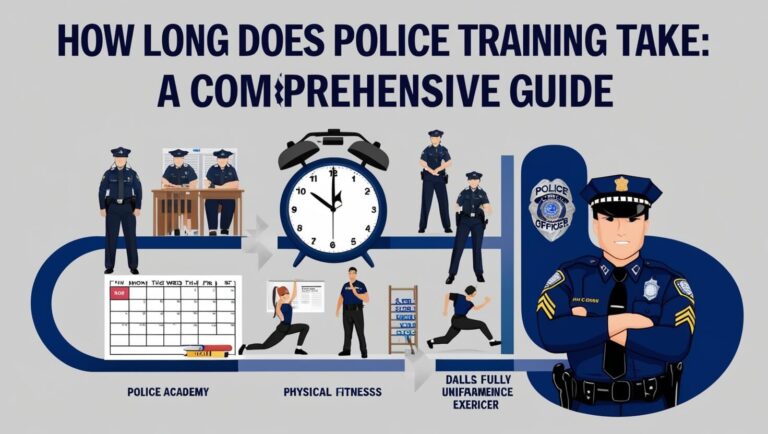Police Officer Medical Requirements: Essential Standards for Law Enforcement
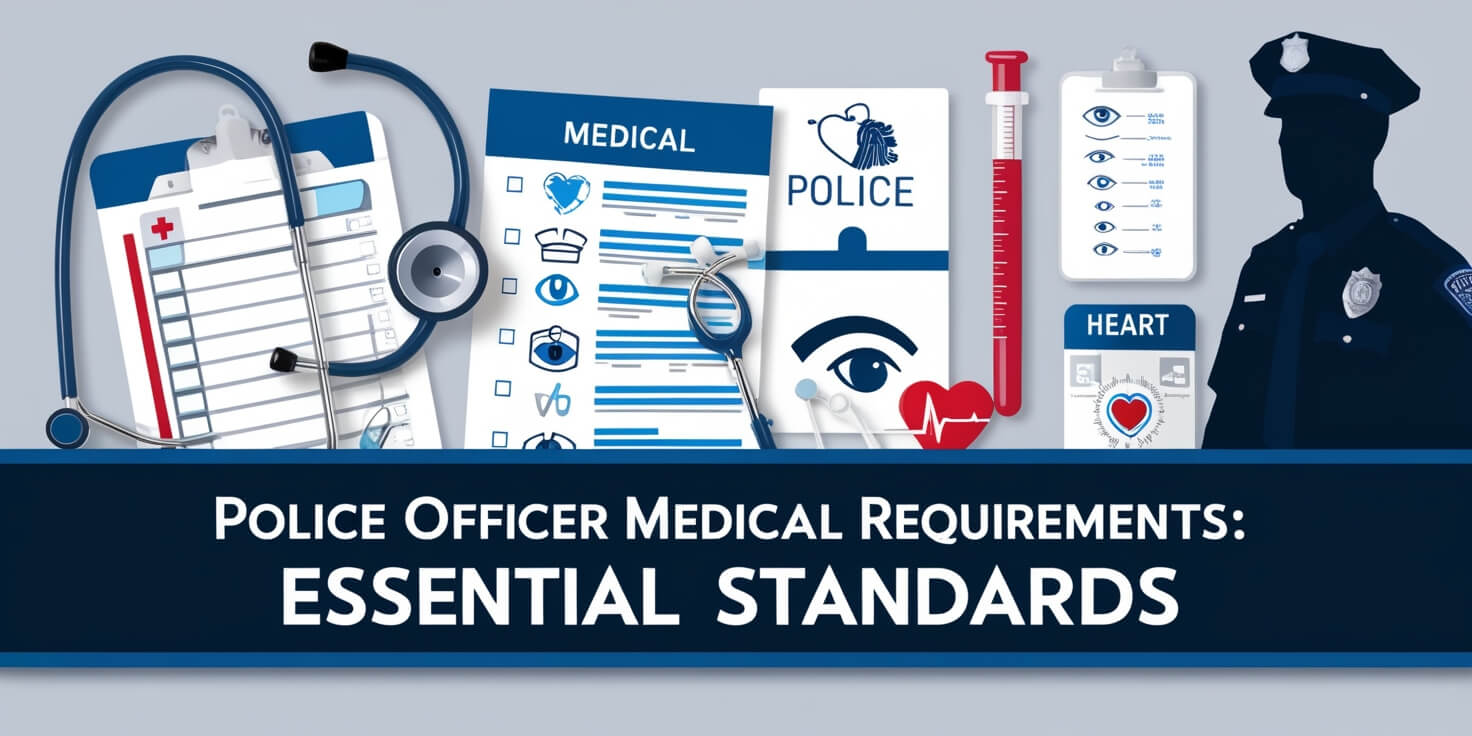
Are you dreaming of a career in law enforcement? Before you put on that badge, you’ll need to meet some strict health standards. Police officer medical requirements ensure that those who protect and serve are physically and mentally fit for the challenging demands of the job.
In this comprehensive guide, we’ll explore the medical standards aspiring officers must meet. From vision tests to cardiovascular health, we’ll cover it all. Whether you’re considering a career change or just curious about what it takes to be a cop, you’re in the right place.
Introduction to Police Officer Health Standards
Law enforcement isn’t your average 9-to-5 job. It’s demanding, both physically and mentally. That’s why police departments have strict medical requirements for their officers.
Why Medical Requirements Matter in Law Enforcement
Think about it. Police officers often face dangerous situations. They might need to chase down suspects, break up fights, or provide emergency first aid. Without good health, these tasks become nearly impossible.
Medical standards help ensure that:
- Officers can perform their duties safely
- The public is protected
- Police departments reduce injury risks and healthcare costs
Overview of Police Medical Assessment Process
So, what does the medical assessment look like? It’s more than just a quick check-up. Most departments require:
- A detailed medical history review
- Physical examination
- Vision and hearing tests
- Cardiovascular health screening
- Drug and alcohol testing
These tests help determine if you’re fit for the physical demands of police work. Let’s dive deeper into each area.
Physical Fitness Standards for Police Officers
Being a cop isn’t all about paperwork. You need to be in top shape to handle the physical aspects of the job.
Body Mass Index (BMI) Requirements
Many departments use BMI as a quick way to assess overall health. While specific requirements vary, most aim for a BMI between 18.5 and 29.9. But remember, BMI isn’t perfect. Muscular individuals might have a higher BMI without being overweight.
Cardiovascular Health Expectations
A healthy heart is crucial for police work. Officers need to be ready for sudden bursts of activity. Most departments require:
- Resting heart rate below 90 beats per minute
- Blood pressure under 140/90 mm Hg
Strength and Endurance Tests
It’s not just about being heart-healthy. You’ll need strength and stamina too. Common tests include:
- Push-ups
- Sit-ups
- 1.5-mile run
Each department sets its own standards, but expect to demonstrate above-average fitness levels.
Vision Requirements for Law Enforcement
Good eyesight is essential in police work. You need to be able to spot potential threats and read important details quickly.
Visual Acuity Standards
Most departments require 20/30 vision or better in each eye, with or without correction. Some may accept 20/40 if it’s correctable to 20/30 with glasses or contacts.
Color Vision Tests
Color blindness can be a problem in police work. You need to be able to describe suspects, vehicles, and evidence accurately. Most departments use tests like the Ishihara color plates to check for color vision deficiencies.
Peripheral Vision Expectations
Wide peripheral vision helps officers stay aware of their surroundings. Expect to be tested on your ability to detect movement and objects at the edges of your vision.
Hearing Standards for Police Officers
Clear communication is vital in law enforcement. That’s why hearing tests are a key part of the medical exam.
Audiometry Test Requirements
Audiometry tests measure how well you can hear different pitches and volumes. Most departments require:
- Ability to hear sounds as low as 25 decibels
- Clear hearing in the range of human speech (500-3000 Hz)
Speech Recognition Thresholds
It’s not just about hearing sounds. You need to understand what’s being said, even in noisy environments. Speech recognition tests ensure you can make out words clearly.
Use of Hearing Aids in Law Enforcement
Some departments allow hearing aids, but there are often restrictions. If you use hearing aids, you’ll need to prove you can perform all duties safely with them.
Respiratory Health for Police Officers
Breathing easy is crucial when you might need to chase down suspects or wear protective gear.
Lung Function Tests
Spirometry tests are common. They measure how much air you can breathe in and out, and how quickly. Most departments look for:
- Forced Vital Capacity (FVC) at least 80% of predicted
- Forced Expiratory Volume in 1 second (FEV1) at least 70% of predicted
Asthma and Police Work
Having asthma doesn’t automatically disqualify you. But you’ll need to show it’s well-controlled and doesn’t interfere with your duties. Expect additional tests if you have a history of asthma.
Smoking Policies in Law Enforcement
Many departments have strict non-smoking policies. Some even test for nicotine use. It’s about setting a good example and maintaining long-term health.
Cardiovascular Health Requirements
A strong, healthy heart is vital for the demands of police work.
Blood Pressure Standards
High blood pressure is a red flag. Most departments require:
- Systolic pressure below 140 mm Hg
- Diastolic pressure below 90 mm Hg
Heart Condition Assessments
Any history of heart problems will be closely examined. You may need additional tests like:
- Electrocardiogram (ECG)
- Stress tests
- Echocardiogram
Cardiovascular Fitness Tests
Expect to prove your heart’s up to the task. Common tests include:
- Step tests
- Treadmill tests
- Bike ergometer tests
These assess how well your heart performs under stress.
Musculoskeletal Health in Policing
Police work can be tough on the body. A strong, flexible musculoskeletal system is essential.
Back and Spine Health Requirements
Back problems are common in law enforcement. You’ll need to show your spine is healthy and strong. This might involve:
- X-rays
- Range of motion tests
- Strength assessments
Joint Mobility and Stability Standards
Healthy, stable joints are crucial. Expect tests on all major joints, including:
- Shoulders
- Hips
- Knees
- Ankles
You’ll need to demonstrate good flexibility and stability.
Previous Injury Considerations
Old injuries don’t necessarily disqualify you. But you’ll need to prove they’re fully healed and won’t interfere with your duties. Be prepared to provide detailed medical records.
Mental Health Standards for Police Officers
Police work can be emotionally challenging. Mental health is just as important as physical health.
Psychological Evaluation Process
Most departments require a thorough psychological assessment. This usually involves:
- Written tests
- Interviews with a psychologist
- Personality assessments
The goal is to ensure you’re mentally fit for the stresses of police work.
Stress Resilience Assessment
Cops face high-stress situations regularly. You’ll need to show you can handle pressure. This might involve:
- Scenario-based tests
- Stress tolerance assessments
- Coping mechanism evaluations
Substance Abuse Screening
Drug and alcohol abuse is a big no-no in law enforcement. Expect rigorous screening, including:
- Urine tests
- Blood tests
- Hair follicle tests in some cases
Many departments have zero-tolerance policies for substance abuse.
Neurological Health in Law Enforcement
A healthy nervous system is crucial for quick reactions and decision-making in police work.
Seizure Disorder Policies
Most departments have strict policies on seizure disorders. Generally, you’ll need to be seizure-free for a certain period (often 5-10 years) without medication to be considered.
Head Injury History Evaluation
Any history of serious head injuries or concussions will be closely examined. You may need to provide:
- Detailed medical records
- Neurological exam results
- Cognitive function test results
Balance and Coordination Tests
Good balance and coordination are essential for many police tasks. Expect tests like:
- Standing balance tests
- Rapid alternating movement tests
- Finger-to-nose tests
These help assess your neurological function.
Infectious Disease Screening for Police Officers
Police often come into close contact with the public. Infectious disease screening helps protect both officers and the community.
Hepatitis B Vaccination Requirements
Most departments require Hepatitis B vaccination. If you’re not already vaccinated, you’ll need to start the series before beginning work.
HIV Testing Policies
HIV testing policies vary by department. Some require testing, while others make it voluntary. Either way, HIV-positive status doesn’t automatically disqualify you if you’re otherwise healthy.
Tuberculosis Screening
TB screening is standard in most departments. This usually involves a skin test or blood test. If positive, you’ll need further evaluation to ensure you’re not contagious.
Endocrine and Metabolic Health Standards
Your body’s hormone and metabolic systems play a big role in overall health and fitness.
Diabetes Management in Policing
Having diabetes doesn’t automatically disqualify you. But you’ll need to show it’s well-controlled. Expect:
- HbA1c tests
- Blood glucose monitoring
- Evaluation of any diabetes-related complications
Thyroid Function Requirements
Thyroid problems can affect energy levels and weight. Most departments check thyroid function as part of the overall health screening.
Metabolic Syndrome Screening
Metabolic syndrome – a cluster of conditions including high blood pressure, high blood sugar, and abnormal cholesterol levels – is a growing concern. Many departments now screen for these factors.
Gastrointestinal Health for Law Enforcement
A healthy digestive system is important for overall wellbeing and job performance.
Digestive Disorder Policies
Chronic digestive issues like Crohn’s disease or ulcerative colitis don’t necessarily disqualify you. But you’ll need to show they’re well-managed and won’t interfere with your duties.
Liver Function Tests
Liver health is important for overall fitness. Most departments include liver function tests in their medical screening.
Nutritional Health Standards
Good nutrition is key to maintaining the fitness levels required for police work. Some departments offer nutritional counseling or have specific dietary guidelines for officers.
Age-Related Considerations in Police Medical Requirements
Age can affect health and fitness, but it doesn’t have to be a barrier to a career in law enforcement.
Maximum Entry Age Policies
Many departments have maximum entry ages, often around 35-40. This is due to both physical demands and pension considerations.
Age-Adjusted Fitness Standards
Some departments use age-adjusted standards for physical fitness tests. This recognizes that peak physical performance can change with age.
Retirement and Health Considerations
Health requirements don’t stop once you’re on the force. Many departments require ongoing health assessments throughout an officer’s career.
Gender-Specific Medical Requirements in Policing
Modern police forces strive for equality while recognizing some biological differences.
Pregnancy Policies in Law Enforcement
Pregnancy doesn’t disqualify you from being a police officer. Most departments have policies to accommodate pregnant officers, including temporary reassignment to less physically demanding roles.
Gender-Neutral Fitness Standards
Many departments now use gender-neutral fitness standards. The focus is on whether you can perform the job, regardless of gender.
Transgender Officer Health Considerations
Policies for transgender officers are evolving. Most departments focus on whether the officer can perform all required duties safely, regardless of gender identity.
Medical Disqualifications in Police Recruitment
Some health conditions can prevent you from becoming a police officer. It’s important to understand these potential disqualifiers.
Common Health-Related Disqualifiers
While policies vary, common disqualifiers include:
- Uncontrolled chronic diseases
- Severe vision or hearing impairments
- Recent drug use
- Certain mental health conditions
Appeal Process for Medical Disqualifications
If you’re disqualified for medical reasons, many departments offer an appeal process. This might involve:
- Providing additional medical information
- Getting a second opinion
- Demonstrating that your condition is well-managed
Temporary vs. Permanent Disqualifications
Some health issues might only temporarily disqualify you. For example, you might be able to reapply after:
- Recovering from an injury
- Getting a medical condition under control
- Losing weight to meet BMI standards
Ongoing Health Maintenance for Police Officers
Becoming a police officer is just the start. Maintaining your health throughout your career is crucial.
Annual Medical Examinations
Most departments require annual check-ups. These help catch any health issues early and ensure officers maintain the fitness levels needed for the job.
Fitness for Duty Assessments
If there are concerns about an officer’s health, they may need to undergo a fitness for duty assessment. This ensures they can still perform all aspects of the job safely.
Health and Wellness Programs in Law Enforcement
Many departments now offer health and wellness programs. These might include:
- Fitness classes
- Stress management workshops
- Nutritional counseling
These programs help officers stay healthy and perform at their best.
Conclusion: The Importance of Comprehensive Medical Standards in Policing
Police officer medical requirements are comprehensive for good reason. They ensure that those who protect and serve are up to the physical and mental challenges of the job.
If you’re considering a career in law enforcement, start working on your health and fitness now. Even if you don’t meet all the standards today, many can be improved with time and effort.
Remember, these requirements aren’t about excluding people. They’re about ensuring the safety and effectiveness of our police forces. By maintaining high health standards, we create stronger, more resilient law enforcement agencies that can better serve our communities.
So, are you up for the challenge? With dedication and the right preparation, you could be well on your way to a rewarding career in law enforcement. Stay healthy, stay fit, and who knows? You might just be wearing that badge sooner than you think.
